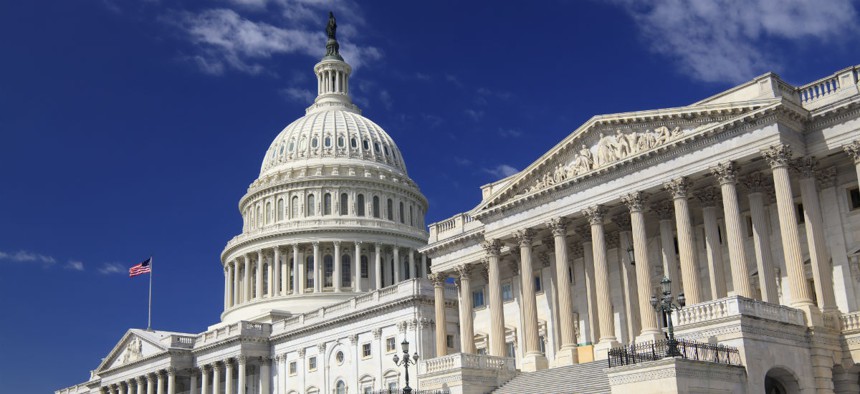
By Vlad G / Shutterstock.com
House Budget Plan Preserves Feds’ Retirement Programs
If approved, the resolution would set up a fight with the Senate over whether to implement the Trump administration’s plans to cut federal employee pensions.
The House plans to consider a fiscal 2020 budget proposal that likely would not implement any of the Trump administration’s proposals to cut federal employees’ retirement benefits in the near future, setting up a debate with the Senate on how to move forward.
Last month, the Senate Budget Committee advanced its own budget resolution for the next fiscal year, which includes instructions that the Senate Homeland Security and Governmental Affairs Committee cut $15 billion from programs within its jurisdiction. Although that proposal does not mandate that the cuts come from federal workers’ benefits, that panel is typically the avenue by which lawmakers seek to make changes to the Federal Employees Retirement System.
By contrast the House proposal, entitled the Investing for the People Act (H.R. 2021), contains no instructions for the House Oversight and Government Reform Committee to reduce spending. The competing plans come in the wake of President Trump’s fiscal 2020 budget request, which revives for the third straight year a number of proposals to cut federal employees’ retirement programs and also recommends a pay freeze for civilian federal workers.
The White House’s proposed changes to cut retirement benefits include requiring federal employees to contribute an additional 6 percent toward FERS, phased in over the next six years; eliminating cost of living adjustments for FERS retirees; and reducing COLAs for Civil Service Retirement System annuitants by 0.5 percent.
The administration also proposed eliminating the early retirement supplement for FERS annuitants under the age of 62; basing annuity calculations on an employee’s highest five years of salary, rather than the current highest three years; and cutting the interest rate of the Thrift Savings Plan’s government securities (G) fund, basing it on a short-term U.S. Treasury bill rather than the current weighted average of all outstanding Treasury investments.
Senate Democrats last month sought in vain to remove the proposal that could impact federal retirement benefits from that chamber’s budget resolution. At that hearing, Senate Budget Committee Chairman Sen. Mike Enzi, R-Wyo., suggested that the proposal was merely the starting point for negotiations with the House.
“Right now, this is simply a target for committees, and it is not prescriptive,” Enzi said last month. “It’s up to each committee how they want to do it. It could be cuts or it could be revenue . . . [We want to] move it one step closer to a possible floor debate, and then a possible conference [committee negotiation] with the House.”
Still, it is unclear whether the House will be successful in approving its budget resolution. The Washington Post reported Tuesday that members of the House Progressive Caucus have threatened to withhold their votes if the proposal is not amended to create parity between defense and non-defense spending. And House leadership Tuesday afternoon postponed a vote on the measure, originally scheduled for Wednesday.
This story has been updated to reflect that the House vote was postponed.







